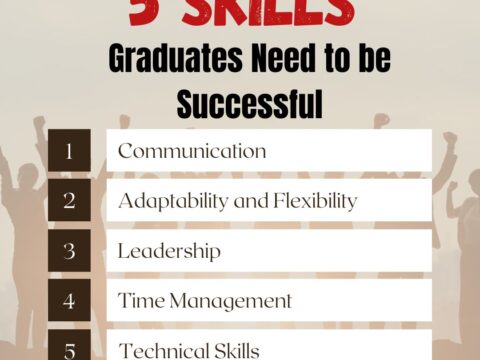If you participated in December’s Hour of Code, you may have come to realize the importance of Computer Science to students. Greg Beutler is the Director of Techscool.org, a school devoted to teaching kids this fundamental skill through the lens of robotics, coding, competitions, and more. The school’s tagline is Learn to code; Code to learn. Pretty pithy.
Here’s Greg’s informed perspective on this question:
Beyond job opportunities, why should all K-12 students learn about computer science?
 Computer Science is an important subject for all students because it teaches you how to think. The act of writing a computer program requires you to think about how to create sequences which are step by step procedures on how to solve a given problem. CS also teaches the student, what sequences are run, what sequences should run if that sequence fails. CS teaches the student how to present that failure or success of that operation to the user via a GUI, and how the GUI should look and what the next outcome should be of the interactions between the user, the software and the computing device. Computer Science is an integrative subject, not siloed like other subjects taught at school.
Computer Science is an important subject for all students because it teaches you how to think. The act of writing a computer program requires you to think about how to create sequences which are step by step procedures on how to solve a given problem. CS also teaches the student, what sequences are run, what sequences should run if that sequence fails. CS teaches the student how to present that failure or success of that operation to the user via a GUI, and how the GUI should look and what the next outcome should be of the interactions between the user, the software and the computing device. Computer Science is an integrative subject, not siloed like other subjects taught at school.
Starting children early is best. To illustrate this I’ll use my favorite analogy, which is the baseball analogy. Both the little leaguer and a major leaguer perform the same operations, they catch a ball, throw a ball and hit a ball. But the major leaguer is much more talented and skilled. They have done all of those actions thousands of times in practice and games. They have honed their skill to a very great extent with competition and practice. They have a keen understanding of the game, the rules, and the winning strategies. They know where to hit the ball against a particular team in a particular situation. They know where to throw the ball in a particular situation. They can anticipate the actions of their teammates and opponents and react accordingly. Starting children early
gives them a wide arena of problems and problem-solving skills. The same applies to computer science. At a young age we can solve simple problems such as sorting different colored beads into different cups, then when we are older we can solve more complex problems such as writing a program using sorting algorithms for all sorts of items; including colored beads., which is called abstraction.
Here are the top five skills that most successful computer science students possess.
- Analytical skills. Being a computer science major involves identifying a problem and coming up with a technological solution to address it. …
- Problem-solving skills. …
- Creativity. …
- Critical-thinking skills. …
- Resilience.
Analytical Skills
A Computer Science student has a good skill set with regard to identifying a problem and coming up with the knowns, unknowns and a technological solution to solve it. A better student will have several options to solving the problem, as the problem may be in flux ( natural disaster, such as a flood) or have several unknowns ( problems in physics and astronomy). The student will integrate all of their other subject domain learning and apply it to the problem at hand. Computer Science is a tool, much like a monkey wrench in a toolbox, it can loosen or tighten a variety of nuts.
Problem-solving skills
These skills such as producing Algorithms is a key computational skill, is problem-solving at its root. Understanding the underlying patterns and processes that need to be run to solve a given problem whether it is producing directions to your nearest Starbucks.
The world needs more creativity with regards to solving problems. We are experiencing issues we’ve never had to grapple with before, such as climate change, booming population growth.
Creativity
This not really a skill, but rather an innate trait. We as teachers can’t really “teach” it, but we can nurture it, we can provide the fertile classroom, where there isn’t just one approach, but allow for many creative solutions. We can support different solutions and approaches to solving problems and presenting solutions.
Critical-thinking skills
These skills go way beyond solving math problems, As there may be a solid numerical value, say $5MM to a homelessness problem. But there are other considerations, such as where to build such homes, how will the community be impacted by this construction and population, what is the timing for the rollout of this plan and what can be done immediately as a short-term solution while the more permanent housing structures can be built. As homelessness is a multi-factorial problem, there are housing pricing issues, as well as behavioral health, employment, and education concerns to be dealt with. Just erecting structures does not solve a problem such as this.
Resilience
Learning to code is a fantastic way to acquire the soft skill of resilience. Resilience, the ability to bounce back from change or adversity, stems from being able to persevere and display grit. Writing code requires grit, as many times the student is learning how to tell the computer exactly what they need done, but haven’t specified it with enough precision or clarity and the computer gives erroneous answers if any at all. So the student will need to go back and try again to fix that bug or more precisely ask the computer to do the work required.
Angela Duckworth, who defined the concept of grit and brought it to life through psychological studies, defines grit as “passion and perseverance for long-term goals.” Companies and the world today are in great need of creative problem solvers, regardless of culture, race or skin color. Computer Science is one of those skills; if learned properly, enables one to solve a myriad of problems, especially if the problem can be brought to a digital domain, but even if it can’t the problem-solving skill has been honed and can be applied to most any situation.
–Greg Beutler is the Director of Techscool as well as a Computer Science Teacher at Oakland Unity High School, committed to the importance of technology in education.
More on technology in school
Jacqui Murray has been teaching K-18 technology for 30 years. She is the editor/author of over a hundred tech ed resources including a K-8 technology curriculum, K-8 keyboard curriculum, K-8 Digital Citizenship curriculum. She is an adjunct professor in tech ed, Master Teacher, webmaster for four blogs, an Amazon Vine Voice reviewer, CAEP reviewer, CSTA presentation reviewer, freelance journalist on tech ed topics, contributor to NEA Today and TeachHUB, and author of the tech thrillers, To Hunt a Sub and Twenty-four Days. You can find her resources at Structured Learning.




































